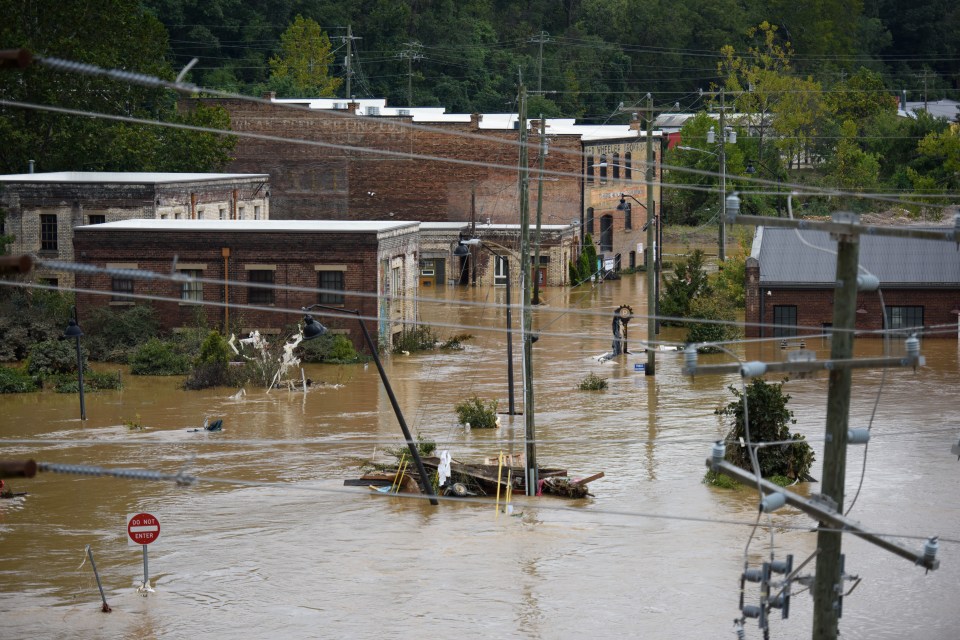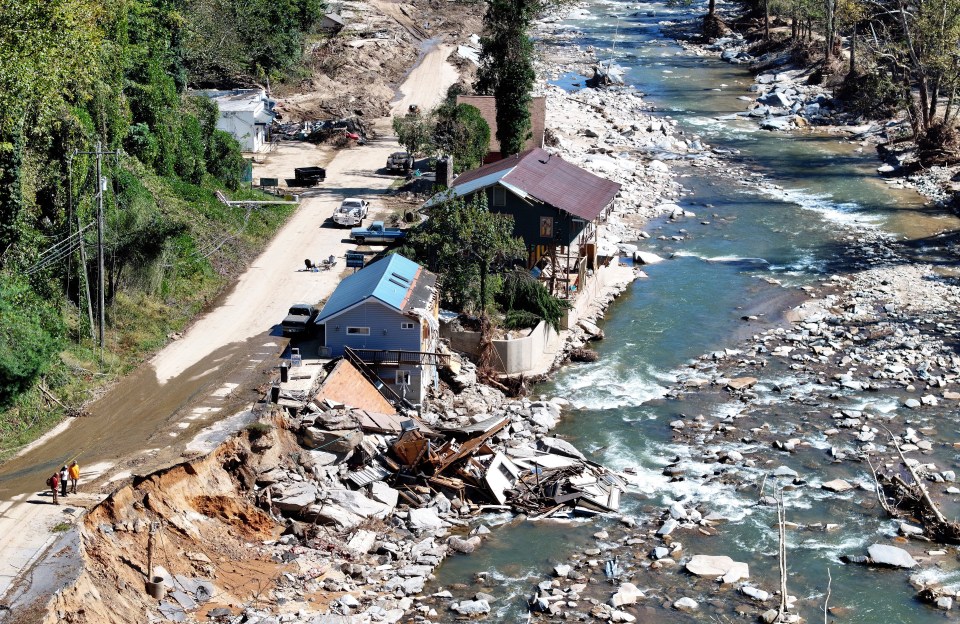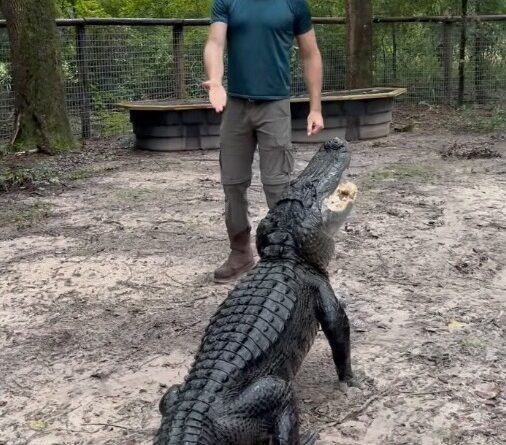The alarming warning of crows like a hurricane will trigger a rise in vision
DESTRUCTIVE FLOODING caused by Hurricane Milton could bring another danger to victims—floods.
A wildlife expert warned of the deadly creatures being swept miles away by floodwaters hours before the storm hit.

4

4

4
Christopher Gillette, who runs an animal shelter in Putnam County, north Florida, issued a warning on his Instagram account.
Sharing images of her Bellowing Acres sanctuary being prepared for Hurricane Milton, Gillette urged Floridians to be vigilant.
“There will be many worried animals on the move, also trying to survive the storm,” he wrote.
Gillette warned that insects pose a particular threat because they can breathe for six hours at a time.
But he told the People that the crows in his sanctuary will not go anywhere.
“Our grown insects and alligators will be perfectly fine with the hurricane, we’ll be bringing birds and other small animals indoors, but these big guys? They’ll be fine and happy,” he said. he said.
Gillette gave advice to her followers on Instagram about how to care for dangerous wildlife displaced by Hurricane Milton.
Urging people to show compassion, he warned that many animals would be “drift out of their homes and flee to strange places.”
He told people to leave the snakes alone, adding, “Remember that most of the big snakes happen when people want to kill the snake, let them go!”
There will be many worried animals on the move, also trying to survive the storm
Christopher Gillette
Gillette told Floridians who find an injured animal to try to contact a wildlife agency, but added that everyone will be “hungry.”
This is not the first time that these types of warnings have been issued after severe storms in the southeastern United States.
In September 2020, an alligator was shown swimming in an Alabama street after Hurricane Sally.
In August 2021, urgent alligator warnings were issued during Storm Ida, as horrifying images showed the beasts chasing people and swimming in floodwaters in Louisiana.
It comes as…
Tornado Milton made landfall on Wednesday night – bringing winds of 120mph and severe storm surge.
It followed in the wake of Hurricane Helene, which devastated parts of Florida, Georgia, North Carolina and South Carolina, and killed 227 people.
About 7.3 million people live in the 15 Florida counties where evacuation orders are in place.
Officials in Tampa on Florida’s west coast, which is directly in the storm’s path, are urging people to leave.
What is a hurricane and how is it formed?
A typhoon is another name for a tropical cyclone – a powerful storm that forms over warm ocean waters near the equator.
Those that occur in the Atlantic or the eastern Pacific are called hurricanes, while those in the western Pacific and the Indian Ocean are called typhoons or typhoons.
North of the equator they rotate anticlockwise due to the Earth’s rotation, however, they rotate in the opposite direction in the southern hemisphere.
Hurricanes are like giant weather engines that are powered by water vapor as it evaporates from the ocean.
Warm, moist air rises, creating a low pressure system that sucks in air from nearby areas and is warmed by the ocean.
As the vapor rises it condenses and forms into swirling bands of cumulonimbus storm clouds.
This system expands and rotates rapidly, absorbing large amounts of air and feeding off the energy of the ocean’s warmed water by the sun.
In the center, a calm “eye” of the storm is formed where cool air descends into a low pressure area, surrounded by gusts of warm rising air.
When the wind blows faster, the air pressure is lower in the center, and the storm grows stronger and stronger.
Tropical cyclones often weaken when they make landfall because they are no longer fed by steam from the warm ocean.
But they often travel far inland – dumping heavy rain and causing severe wind damage – before the “fuel” runs out and the storm exits.
Hurricanes can also cause rainstorms when weaker winds absorb more seawater than normal, flowing along low-lying shores.
On top of the tragic human cost that Milton threatened to bring, people have warned of a devastating impact on the wider American economy, with jobs, travel, manufacturing, retail and housing all potentially affected.
About 3% of America’s gross domestic product is directly in Milton’s path, according to Ryan Sweet, chief US economist for Oxford Economics.
Tourists were left stranded at Disney World in the hours leading up to the storm after a nearby airport was closed.

4
#alarming #warning #crows #hurricane #trigger #rise #vision
